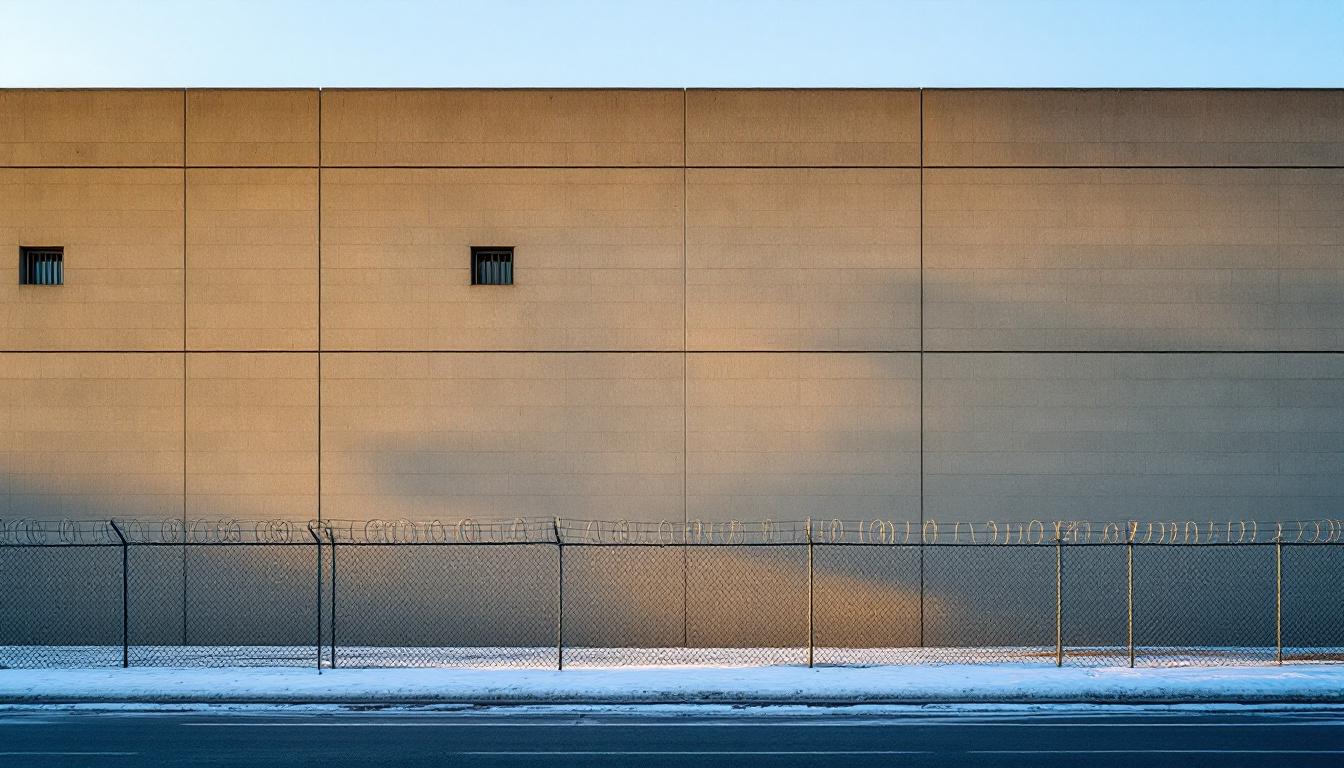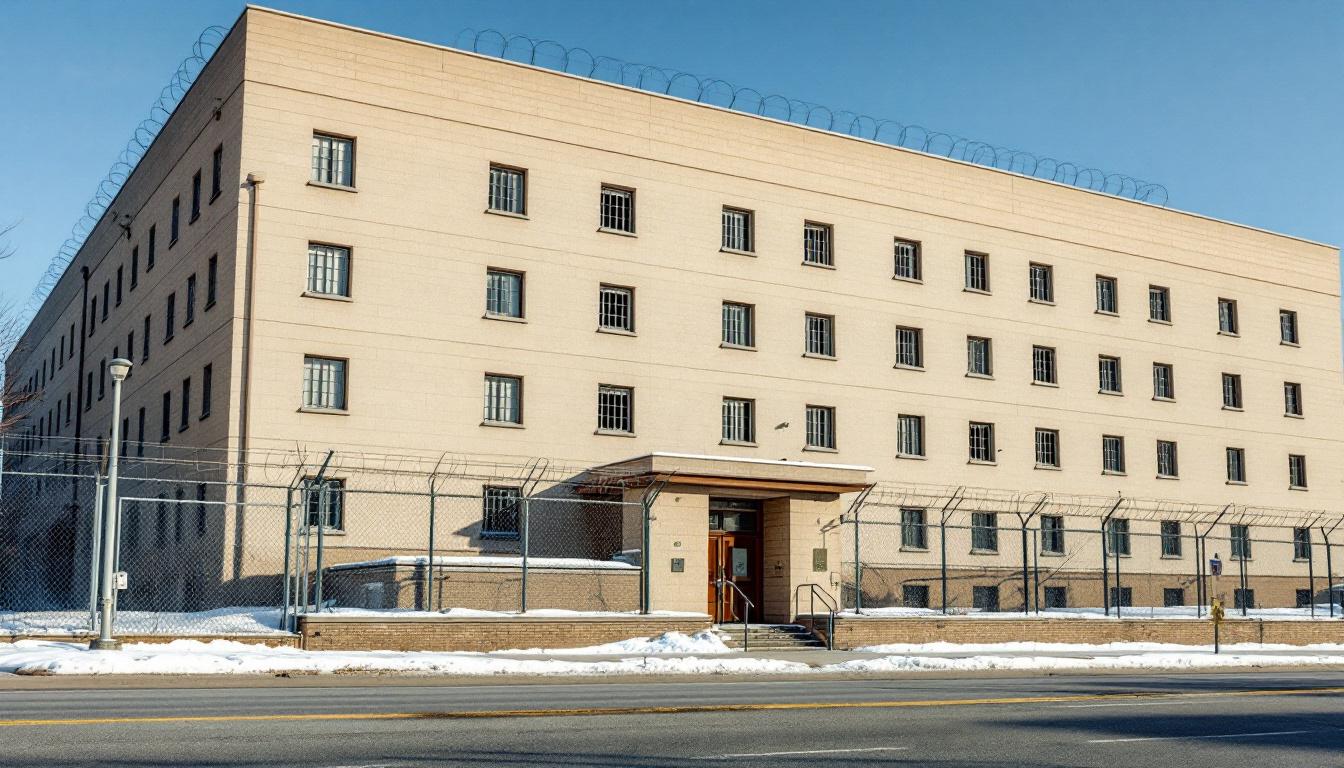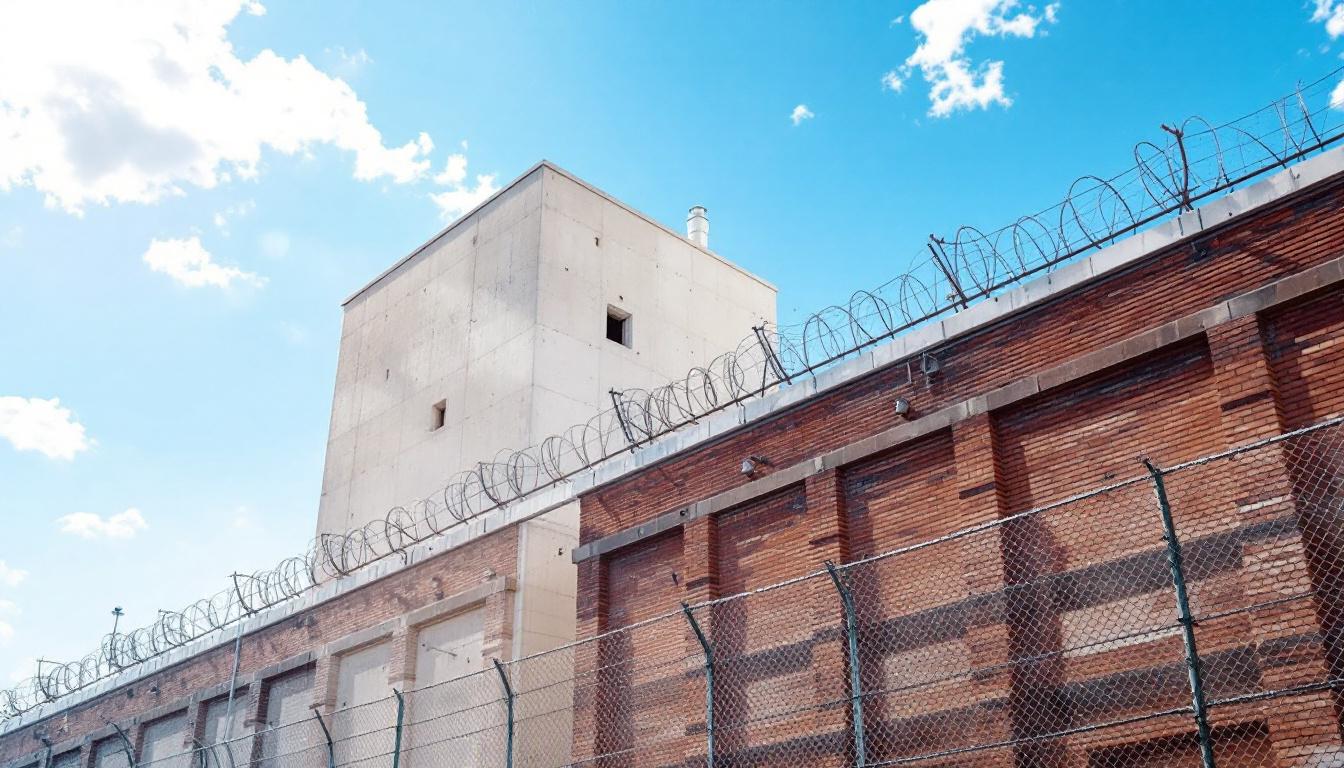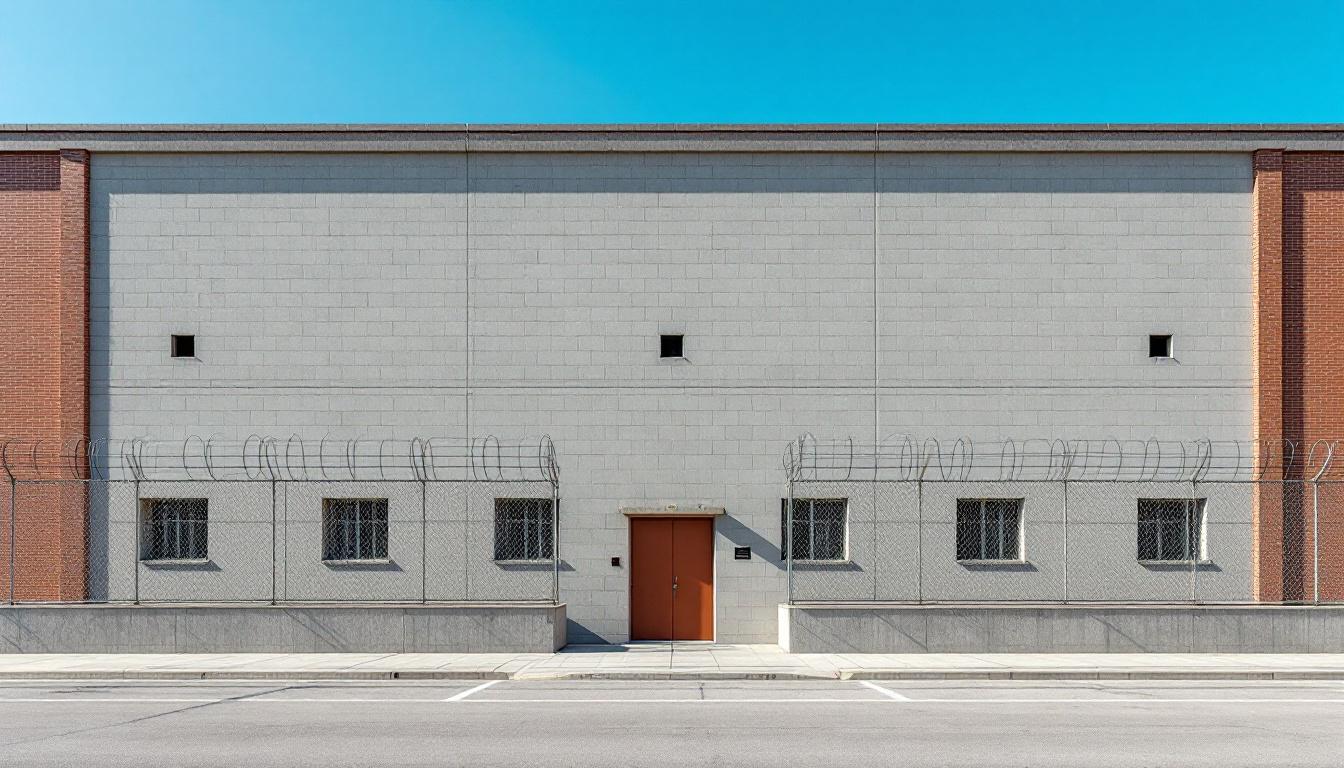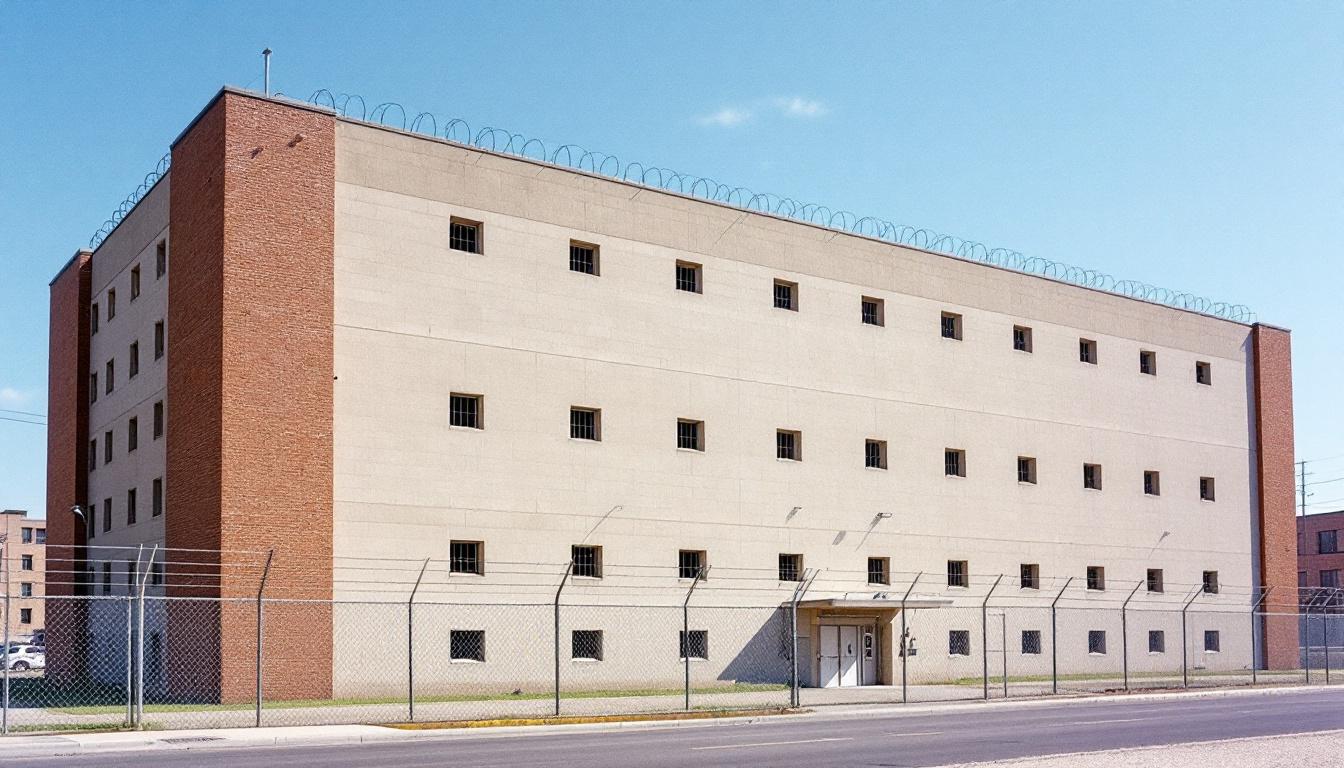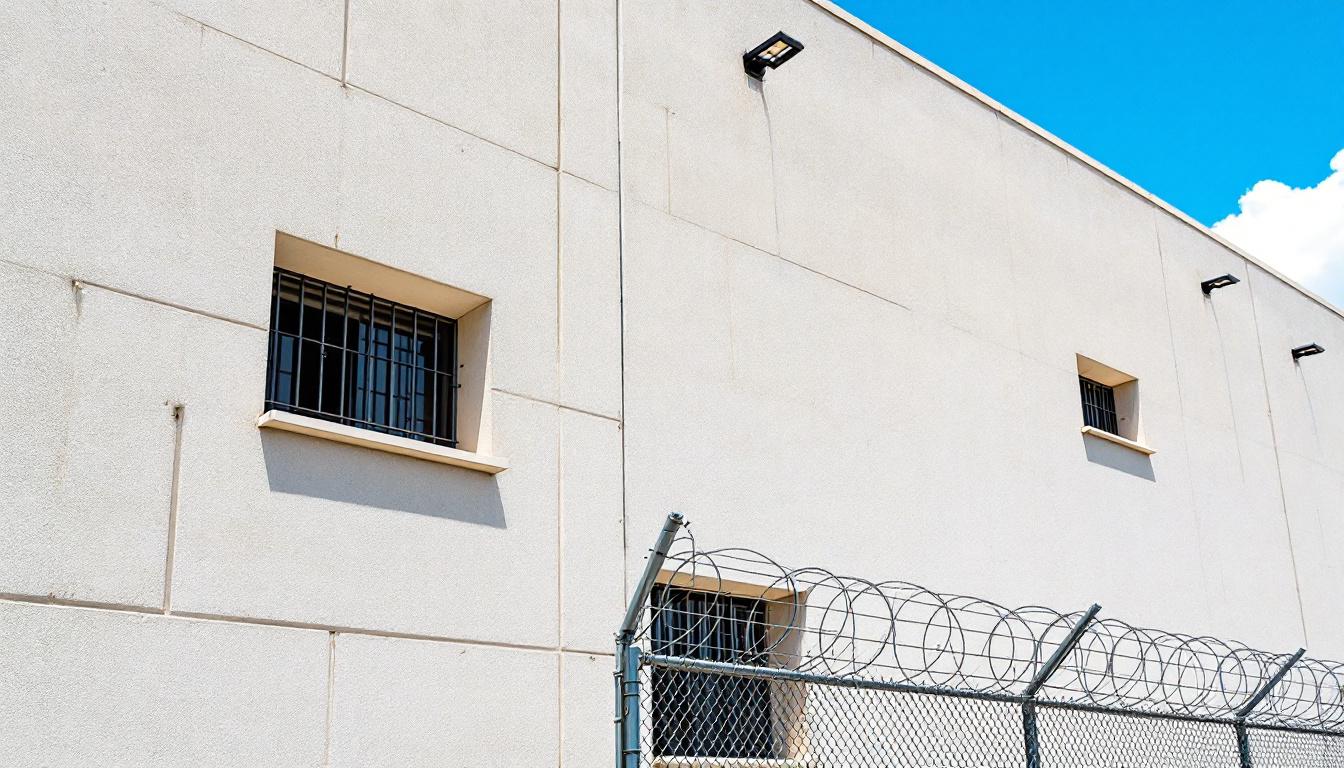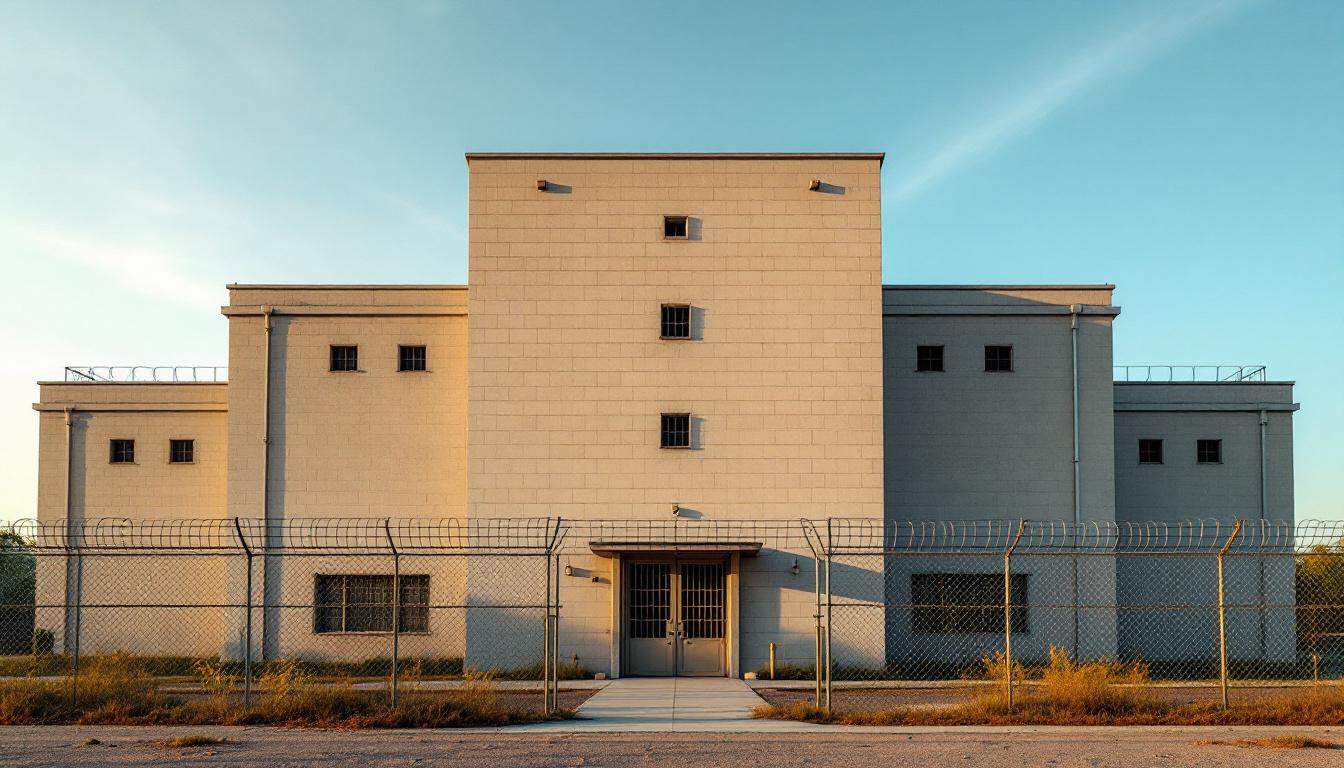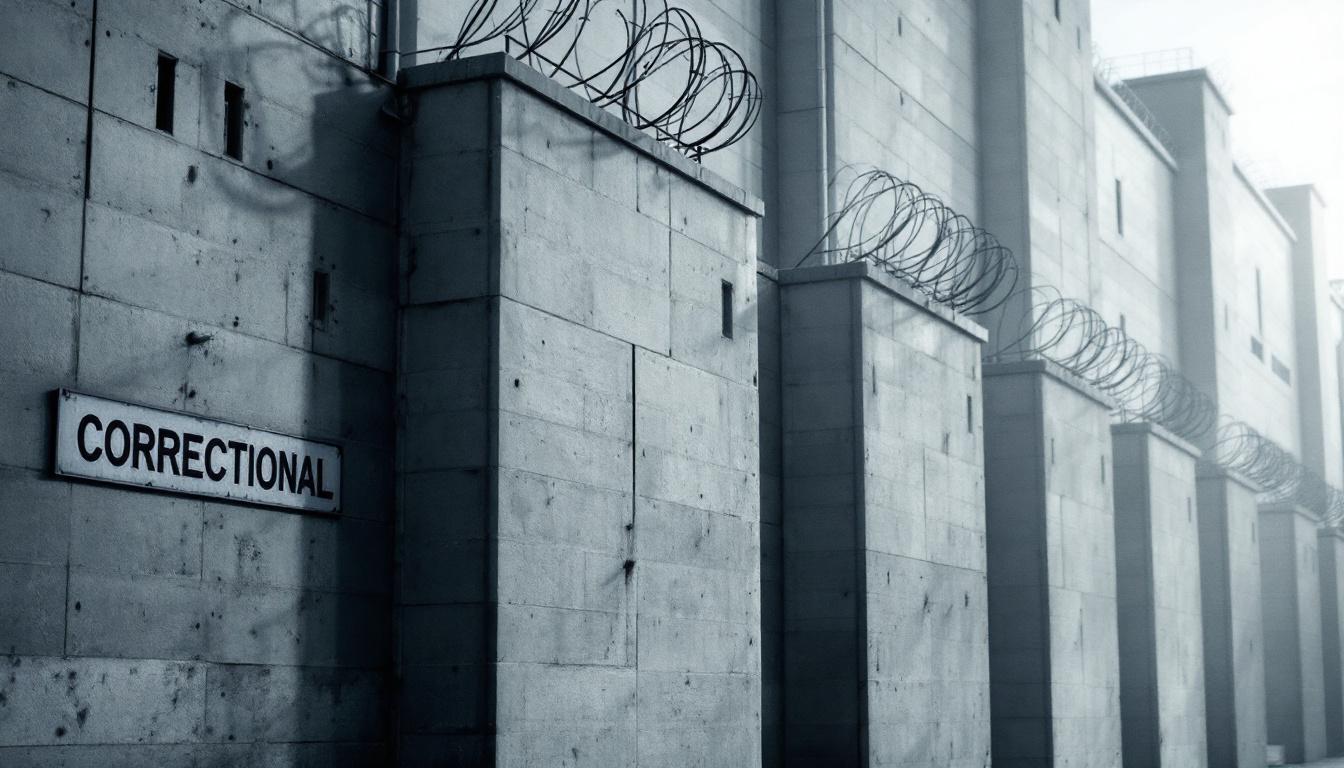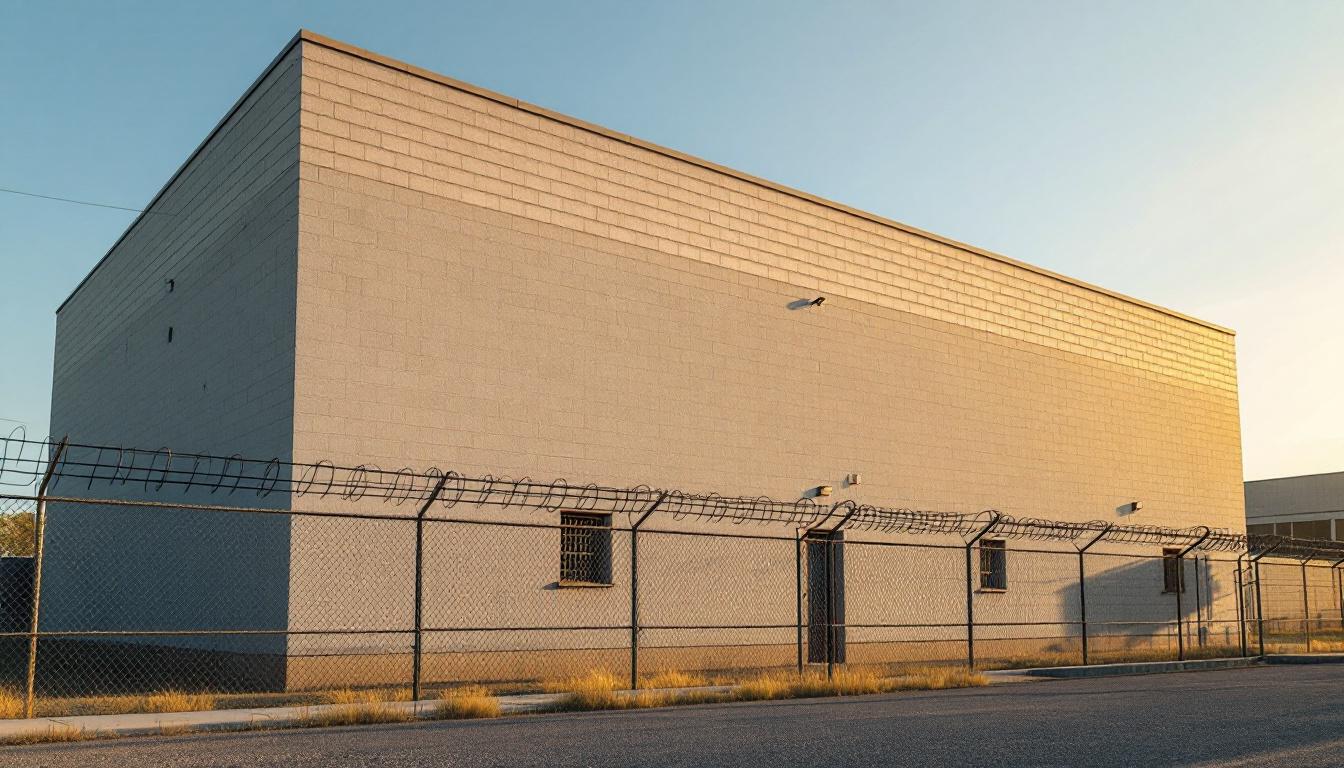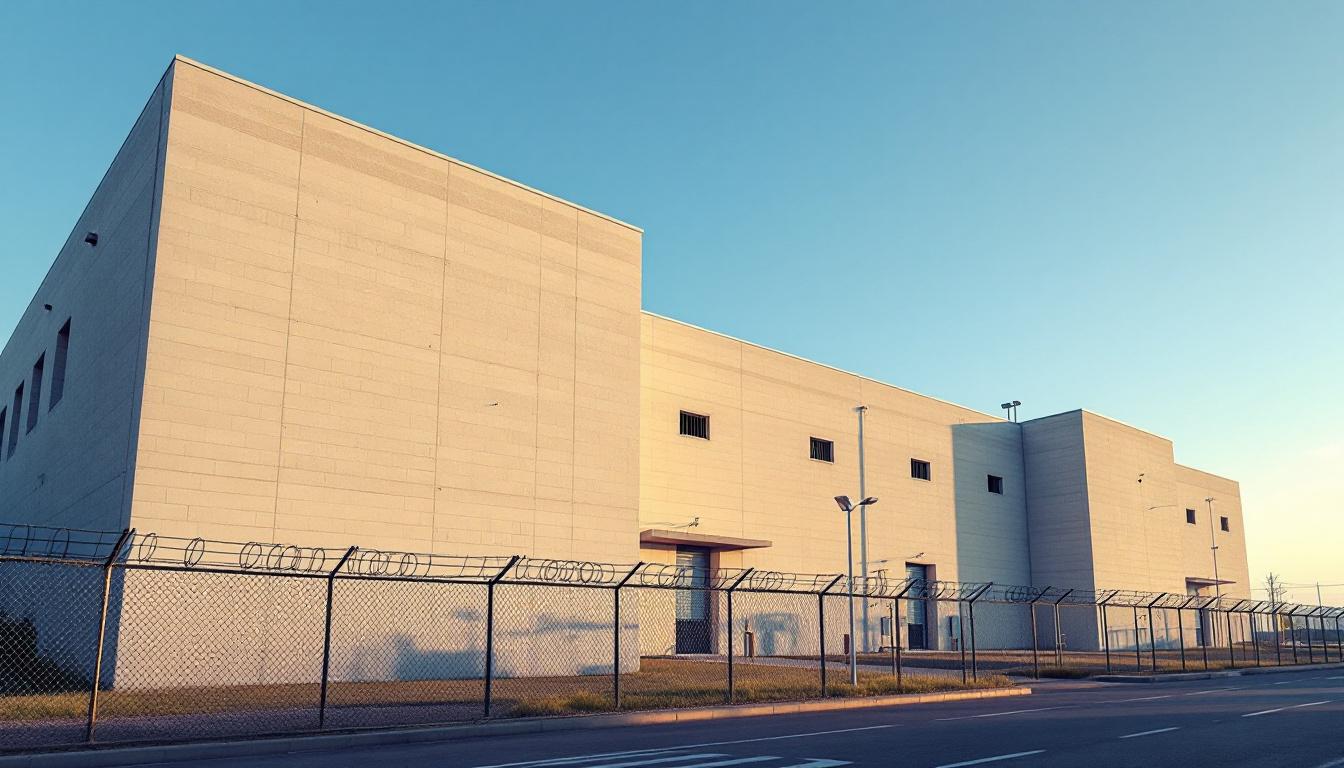
Quick Navigation
How to contact an inmate at Montrose County Sheriff's Office
This comprehensive guide will walk you through how to connect with an inmate at Montrose County Sheriff's Office. Follow the steps below to find an inmate and send letters and photos:
- Search for the inmate using our search tool below
- Create your account or log in to Penmate
- Write your message (up to 6,000 characters)
- Send instantly - inmates receive printed copies daily
Find an Inmate
Search for an inmate to start communicating today
Tip: You can search by first name, last name, or inmate ID number
To contact a person at Montrose County Sheriff's Office start by searching for the person on the official facility website. Perform a search by following these steps:
- Step 1: Enter their first name and last name into the search form and click "Search"
- Step 2: Locate their inmate record
- Step 3: Write down their Inmate ID and any housing information provided
Important! Be sure to enter the person's full name. Nicknames should not be used.
How to Send Messages to Inmates

You can use your phone or computer to send emails, letters, and photos to an inmate. Messages are sent electronically to inmate tablets or kiosks at the facility. If you would like to send a message, start by searching for an inmate at Montrose County Sheriff's Office.
Sending Photos and Postcards

A great way to send love and support to a loved one at Montrose County Sheriff's Office is to send photos and postcards. It only takes a few minutes to send photos from your phone and it makes a huge difference. You can also mail postcards with words of support and inspiration, or design your own postcard for special moments like birthdays and holidays.
Important! Be sure not to send any explicit photos or they may not be approved by the facility. You can also use a photo printing app like Penmate to make sure your photos are printed at the correct size (4x6 or 3x5) and are mailed according to the rules and regulations of Montrose County Sheriff's Office.
Frequently asked questions about Montrose County Sheriff's Office
-
How long does it take to deliver a message?
If you're sending an email message your letter is usually delivered within 24-48 hours. For messages sent via mail you should expect delivery within 3-7 days. All messages will need be approved by Montrose County Sheriff's Office.
-
How much does it cost to send a message to Montrose County Sheriff's Office?
You can send a message free using your phone or mail a message via USPS for the price of a $0.60 stamp and envelope. You can also purchase credits or e-stamps from services starting at $1.99.
-
What services can I use to contact an inmate at Montrose County Sheriff's Office?
Penmate
You can use Penmate to send letters and photos to an inmate from your phone. It's an easy way to stay in touch during your loved one's incarceration. Use the inmate locator to find an inmate's location and contact information, then you can send messages within a few minutes.
Securus messaging
Securus may be another option for communicating with an inmate at Montrose County Sheriff's Office. You can create a friends and family account and purchase credits to send messages. All messages will be reviewed and must be approved by the facility.
JPay
Some county jails and state prisons may support sending messages with JPay. You must register an account with the system, find your loved one, and purchase stamps to send messages. For some locations you can also attach photos.
Smart Jail Mail
You may also check if Smart Jail Mail is available at Montrose County Sheriff's Office. Smart Jail Mail is operated by Smart Communications and has contracted with some state and county jails. After purchasing credits, your messages and photos are sent to the facility, printed out, and then handed out to your loved one.
-
What is the mailing address of Montrose County Sheriff's Office?
Mailing address:
Montrose County Sheriff's Office
1200 N Grand Ave
Montrose, CO 81401
Phone: (970) 252-4023Business hours:
- Monday: 7:00 AM – 5:00 PM
- Tuesday: 7:00 AM – 5:00 PM
- Wednesday: 7:00 AM – 5:00 PM
- Thursday: 7:00 AM – 5:00 PM
- Friday: 7:00 AM – 5:00 PM
- Saturday: Closed
- Sunday: Closed
-
What are the visiting hours at Montrose County Sheriff's Office?
Visiting hours at Montrose County Sheriff's Office vary by housing unit and security level. Generally, visits are scheduled on weekends and holidays, with some facilities offering weekday visits. Contact the facility directly at (970) 252-4023 or check their website for the current visiting schedule. Visits typically last 30-60 minutes and must be scheduled in advance.
-
What items are prohibited when sending mail to Montrose County Sheriff's Office?
Prohibited items typically include: cash, personal checks, stamps, stickers, glitter, glue, tape, staples, paperclips, polaroid photos, musical or blank greeting cards, hardcover books, magazines with staples, and any items containing metal or electronics. Only send letters on plain white paper with blue or black ink. Photos must be printed on regular photo paper (no Polaroids). Always check with Montrose County Sheriff's Office for their specific mail policies.
-
How do I send money to an inmate at Montrose County Sheriff's Office?
You can send money to an inmate at Montrose County Sheriff's Office through several methods: 1) Online using JPay, Access Corrections, or the facility's approved vendor, 2) Money orders mailed directly to the facility with the inmate's name and ID number, 3) Kiosks located in the facility lobby, or 4) Over the phone using a credit or debit card. Fees vary by method, typically ranging from $2.95 to $11.95 per transaction.
-
Can I schedule a video visit with an inmate at Montrose County Sheriff's Office?
Many facilities now offer video visitation as an alternative to in-person visits. At Montrose County Sheriff's Office, video visits may be available through services like Penmate, Securus Video Connect, GTL, or ICSolutions. Video visits typically cost $10-20 for 20-30 minutes and must be scheduled in advance. You'll need a computer or smartphone with a camera and reliable internet connection. Contact the facility for their specific video visitation policies and approved vendors.
-
What identification do I need to visit an inmate at Montrose County Sheriff's Office?
All visitors must present valid government-issued photo identification such as a driver's license, state ID, passport, or military ID. Minors must be accompanied by a parent or legal guardian who can provide the minor's birth certificate. Some facilities require visitors to be on the inmate's approved visitation list, which may require a background check. Contact Montrose County Sheriff's Office for specific ID requirements and visitor approval procedures.
-
How can I find out an inmate's release date?
To find an inmate's release date at Montrose County Sheriff's Office, you can: 1) Use the online inmate search tool if available, 2) Call the facility's records department, 3) Contact the inmate's case manager or counselor, or 4) Have the inmate provide this information during a call or visit. For privacy reasons, some facilities only release this information to immediate family members.
Facility Overview
Contact Information
Montrose County Sheriff's Office1200 N Grand Ave
Montrose, CO 81401
Phone: (970) 252-4023
Official Website

About Montrose County Sheriff's Office
Serving the correctional needs of Colorado's Western Slope region, the detention processes at Montrose County Jail, CO operate within a framework designed to maintain community safety while managing individuals awaiting trial or serving shorter sentences. Located in the city of Montrose, this CO correctional facility functions as a critical component in the regional justice system, processing cases that flow through the local court system and coordinating with state-level corrections when necessary. The facility's operational philosophy centers on structured daily routines that balance security requirements with basic rehabilitative programming, reflecting the county's approach to managing those incarcerated services within the broader mountain region's correctional network.
The jail's position within Colorado's correctional infrastructure typically involves housing pre-trial detainees and individuals serving sentences of up to one year, following standard county jail protocols that emphasize classification processes and risk assessment procedures. Daily operations generally include intake processing, court transportation coordination, and the provision of basic educational and substance abuse programming that may be available to eligible participants. The facility often works in conjunction with regional partners to provide services such as mental health support and reentry planning, though specific programming may vary based on staffing and resource availability. Through these systematic approaches to detention management, Montrose County Jail maintains its role as a stabilizing force in the local justice system while serving the diverse population of this mountain community.
Programs & Services
Meaningful pathways toward personal transformation await those incarcerated at Montrose County Jail, where a comprehensive framework of developmental offerings emphasizes security, safety, and structured growth opportunities. The facility typically operates under the philosophy that incarceration can serve as a catalyst for positive change, providing participants with tools and resources needed to build productive futures. These carefully structured offerings may furnish individuals with essential skills while maintaining the secure environment necessary for both participant safety and community protection.
Educational advancement forms a cornerstone of the facility's developmental approach, with education programs often designed to help participants complete their academic goals in a structured setting. Furthermore, vocational training opportunities may provide hands-on experience in practical skills that translate directly to employment prospects upon release. These offerings typically emphasize both theoretical knowledge and practical application, allowing those incarcerated to develop marketable abilities while serving their sentences. The combination of educational and vocational components often creates a comprehensive foundation for successful community reintegration.
Therapeutic communities within the facility may offer structured environments where participants can address underlying issues contributing to their incarceration. Furthermore, specialized therapeutic offerings such as sex offender treatment programs typically provide intensive, evidence-based interventions designed to reduce recidivism and promote healthy behavioral patterns. Additionally, the facility may furnish wellness programs and opportunities for electrical work training, creating diverse pathways for personal development. These support services often emphasize both individual accountability and peer support, fostering an environment where meaningful change can occur within the secure confines of the correctional setting.
Daily Life & Visitation
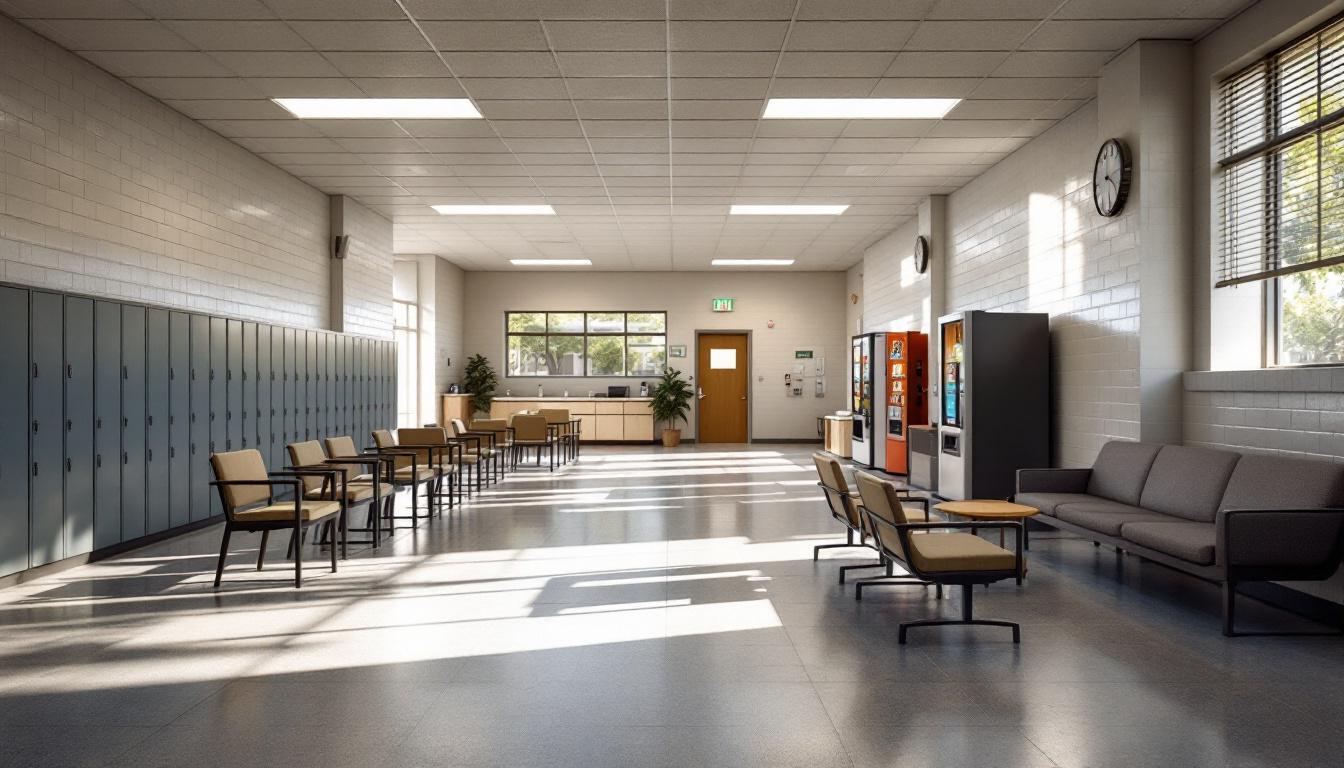
Maintaining connections with family and friends becomes a central focus for those incarcerated at Montrose County Jail, as these relationships often provide crucial emotional support during their time at the facility. The structured environment now revolves around scheduled activities that help residents maintain routines while regularly participating in programs designed to support their well-being. Those incarcerated typically begin their days with morning counts and meal service, followed by various activities that may include educational programming, work assignments, or recreational time.
Living accommodations generally consist of shared housing units where those incarcerated are housed in dormitory-style or multi-person cells, depending on classification levels and available space. The facility typically provides basic furnishings and personal items, while residents may purchase additional commissary items to supplement their daily needs. Meals are usually served in common dining areas, furnishing opportunities for social interaction among residents during designated meal times.
Furthermore, the facility often offers various programs and activities designed to maintain structure and support personal development. Work assignments may include kitchen duties, facility maintenance, or laundry services, which can provide those incarcerated with a sense of purpose and routine. Although security protocols govern all activities, visitation opportunities typically allow family members to maintain regular contact through scheduled visits, phone calls, and correspondence. Recreation time usually includes access to television, reading materials, and physical exercise opportunities, helping residents stay connected to the outside world while managing the challenges of incarceration.
Ready to Connect?
Start communicating with your loved one today
Search for an Inmate
